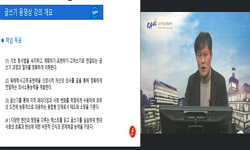앙토냉 아르토의 삶은 잔혹한 실존의 드라마이다. 그는 고통이 투사된 정신적 삶을 살았다. 이 논문은 언어의 수형자로서 아르토의 글쓰기에 나타난 사유의 궤적을 살펴본 것이다. 아르토는...
http://chineseinput.net/에서 pinyin(병음)방식으로 중국어를 변환할 수 있습니다.
변환된 중국어를 복사하여 사용하시면 됩니다.
- 中文 을 입력하시려면 zhongwen을 입력하시고 space를누르시면됩니다.
- 北京 을 입력하시려면 beijing을 입력하시고 space를 누르시면 됩니다.
https://www.riss.kr/link?id=A102509392
- 저자
- 발행기관
- 학술지명
- 권호사항
-
발행연도
2016
-
작성언어
Korean
- 주제어
-
등재정보
KCI등재
-
자료형태
학술저널
-
수록면
219-243(25쪽)
-
KCI 피인용횟수
0
- DOI식별코드
- 제공처
- 소장기관
-
0
상세조회 -
0
다운로드
부가정보
국문 초록 (Abstract)
앙토냉 아르토의 삶은 잔혹한 실존의 드라마이다. 그는 고통이 투사된 정신적 삶을 살았다. 이 논문은 언어의 수형자로서 아르토의 글쓰기에 나타난 사유의 궤적을 살펴본 것이다. 아르토는 평생 말과 사물, 존재와 사유의 관계 사이에서 번민한 시인이다. 그는 존재의 신비를 일상의 언어로 옮길 때마다 정신적 고뇌에 사로잡혔다. 그의 시적 사유는 주체성의 상실에 따른 해체의 여정으로 향한다. 그럼에도 불구하고 그는 세상을 언어로 포착할 수밖에 없는 운명을 타고났다. 아르토는 젊은 시절 정신병을 앓았다. 우리는 그 병을 시적 창작의 어려움과 결부시켜 살폈다. 여기서는 아르토와 리비에르가 주고받은 편지 내용들을 중심으로 분석했다. 시인은 “영혼의 중심의 붕괴, 일종의 근본적이고 달아나는 사유의 침식”을 언급하며 언어적 표현의 무능력을 토로한다. 그 이후 아르토의 불안한 정신적 징후는 지속된다. 그는 정신착란이 최악의 상태에 이르러도 의식만큼은 잃지 않았다. 그것은 아르토의 글쓰기에 그대로 나타난다. 또 그의 종교적 성향은 불안정한 정신을 반영한다. 멕시코 타라후마라 지방 여행 중엔 원시신앙인 페요틀의 의식(儀式)에 집착하고 주술에 경도되기도 했다. 그의 비기독교적 신관은 신비주의적 성향에서 비롯한 것이다. 아르토는 마지막 순간까지 글쓰기를 포기하지 않았다. 아르토의 정신착란은 엄밀한 의미에서 광기가 아니다. 비록 광기라고 해도 그것은 은유적이다. 그것은 아르토가 자신의 한계를 거부하는 데서 나오며, 육체가 절대적 감각과의 동일시 속에서 자신을 한데 모으려는 열망에서 비롯한다. 그의 지적 능력은 오히려 극도로 고양된 상태에서 더욱 잘 드러났다. 아르토의 광기는 심오한 사색가의 그것과 다를 바 없다. 정신착란을 겪은 시인들의 삶은 그렇지 않은 시인들보다 더욱 시적이다. 아르토의 정상을 벗어난 감정은 우리 자신의 한계, 무력함, 체념 등을 측정할 수 있게 한다. 그래서 그의 절규는 비분절의 고함이지만, 다른 병자의 그것과 성격이 다르다. 왜 우리가 아르토의 작품에 관심을 갖고 천착하는가의 이유가 거기에 있다.
다국어 초록 (Multilingual Abstract)
The life of Antonin Artaud exactly reproduces a very cruel drama. He lived in constant anguish and suffered from severe mental pain. This research will trace his thoughts in his writings while he was a prisoner of language. Artaud was a poet filled wi...
The life of Antonin Artaud exactly reproduces a very cruel drama. He lived in constant anguish and suffered from severe mental pain. This research will trace his thoughts in his writings while he was a prisoner of language. Artaud was a poet filled with anxiety about language, things, being, and thought. Whenever he tried to explain the mystery of being by means of mundane language, he experienced psychological agony. His poetic thoughts began to break down, because of his identity loss. Nevertheless, he was destined to grasp the world through language. Artaud had suffered from mental illness during his youth. His mental illness was associated with his difficulty in creating poetry. In this research, the letter, Correspondance avec Jacques Riviere, is analyzed. The poet refers to “the collapse of the spirit`s core, and the erosion of the fundamental thought that slips away” to convey his linguistic incompetence. Hereafter, he constantly demonstrated anxious mental symptoms. Even though he became mentally deranged, he maintained his consciousness, as is apparent in his writings. Also, his spiritual belief is reflected in his mental uneasiness. While he was traveling through the Tarahumaras area in Mexico, he was obsessed with its primitive belief in the Peyote rituals, and he immersed himself in performing them. His unchristian belief was the product of his mystical personality. Until his last breath, he did not give up writing. Artaud`s mental derangement does not mean lunacy, but if one insists in calling it so, that is a metaphor. His derangement comes from his refusal to accept his limitations and from his aspiring to regard his body in the same light as his intellectual perceptions. His intellect could manifest more easily when his mind was elevated to the extreme. Artaud`s lunacy is no different from that of a profound philosopher. The lives of poets who suffer from mental derangement are more poetic than the lives of those who do not. Artaud`s atypical emotions provide a way of to measure our own limitations, helplessness, and resignation. His scream is nonsegmental but different from that of a mental patient. That difference is why people are interested in his works and wish to delve into his writings.
참고문헌 (Reference)
1 앙토냉 아르토, "잔혹연극론" 현대미학사 1994
2 수전 손택, "우울한 열정" 도서출판 시울 2005
3 박형섭, "아르토와 잔혹연극론" 월인 2003
4 츠베탕 토도로프, "산문의 시학" 예림기획 2003
5 모리스 브랑쇼, "미래의 책" 세계사 1993
6 자크 데리다, "글쓰기와 차이" 동문선 2001
7 Thévenin, Paule, "ce Désespéré qui vous parle" Seuil 1993
8 De Portzamparc, "Renaud, La folie d'Artaud" L'Harmattan 2011
9 Virmaux, Alain, "Qui êtes-vous" La Manufacture 1986
10 A. Antonin, "Oeuvres complètes VIII" Gallimard 203-, 1994
1 앙토냉 아르토, "잔혹연극론" 현대미학사 1994
2 수전 손택, "우울한 열정" 도서출판 시울 2005
3 박형섭, "아르토와 잔혹연극론" 월인 2003
4 츠베탕 토도로프, "산문의 시학" 예림기획 2003
5 모리스 브랑쇼, "미래의 책" 세계사 1993
6 자크 데리다, "글쓰기와 차이" 동문선 2001
7 Thévenin, Paule, "ce Désespéré qui vous parle" Seuil 1993
8 De Portzamparc, "Renaud, La folie d'Artaud" L'Harmattan 2011
9 Virmaux, Alain, "Qui êtes-vous" La Manufacture 1986
10 A. Antonin, "Oeuvres complètes VIII" Gallimard 203-, 1994
11 Artaud, Antonin, "Oeuvres complètes I*, X, XI, XII, XIII, XIV" Gallimard 1994
12 A. Antonin, "Nouveaux écrits de Rodez" Gallimard 1977
13 Artaud, Antonin, "Les Tarahumaras" Gallimard 2007
14 Artaud, Antonin, "Le Théâtre et son Double" Gallimard 1972
15 Blanchot, Maurice, "Le Livre à venir" Gallimard 1959
16 Derrida, Jacques, "L'Écriture et la Différence" Seuil 1970
17 Mauriac, Claude, "L'alittérature contemporaine" Albin Michel 1969
18 Artaud, Antonin, "L'Ombilic des Limbes suivi de Le Pèse-Nerfs" Poésie/Gallimard 1992
19 Roumieux, André, "Je travaille à l'asile d'aliénés" Champ Libre 1974
20 De Mèredieu, "Florence, C'était Antonin Artaud" Fayard 2006
21 Dumoulié, Camille, "Artaud, La vie" Desjonquères 2003
22 Bruno, Pierre, "Antonin Artaud, Réalité et Poésie" L'Harmattan 1999
23 Virmaux, Alain, "Antonin Artaud et le Théâtre" Seghers 1970
24 Floc'h, Katell, "Antonin Artaud et la Conquête du corps, Association Découvrir" Sélection Reader's Digest 1995
25 Dumoulié, Camille, "Antonin Artaud" Seuil 1996
동일학술지(권/호) 다른 논문
-
조선과 일본에 사는 시인 김시종 - 장편시집 『니이가타』에 표현된 `재일`의 의미
- 경희대학교 비교문화연구소
- 김계자 ( Kim Gae-ja )
- 2016
- KCI등재
-
아폴리네르, 폴 엘뤼아르, 이상(LEE Sang) 시의 상형적 시어 비교분석
- 경희대학교 비교문화연구소
- 이병수 ( Lee Byung-soo )
- 2016
- KCI등재
-
- 경희대학교 비교문화연구소
- 이삼출 ( Lee Sam-chool )
- 2016
- KCI등재
-
- 경희대학교 비교문화연구소
- 이선이 ( Lee Sun-yi )
- 2016
- KCI등재
분석정보
인용정보 인용지수 설명보기
학술지 이력
| 연월일 | 이력구분 | 이력상세 | 등재구분 |
|---|---|---|---|
| 2026 | 평가예정 | 재인증평가 신청대상 (재인증) | |
| 2020-01-01 | 평가 | 등재학술지 유지 (재인증) |  |
| 2017-01-01 | 평가 | 등재학술지 유지 (계속평가) |  |
| 2014-01-08 | 학술지명변경 | 외국어명 : 미등록 -> Cross-Cultural Studies |  |
| 2013-01-01 | 평가 | 등재학술지 유지 (등재유지) |  |
| 2010-01-01 | 평가 | 등재학술지 선정 (등재후보2차) |  |
| 2009-01-01 | 평가 | 등재후보 1차 PASS (등재후보1차) |  |
| 2007-01-01 | 평가 | 등재후보학술지 선정 (신규평가) |  |
학술지 인용정보
| 기준연도 | WOS-KCI 통합IF(2년) | KCIF(2년) | KCIF(3년) |
|---|---|---|---|
| 2016 | 0.34 | 0.34 | 0.33 |
| KCIF(4년) | KCIF(5년) | 중심성지수(3년) | 즉시성지수 |
| 0.31 | 0.3 | 0.588 | 0.1 |





 KCI
KCI KISS
KISS







